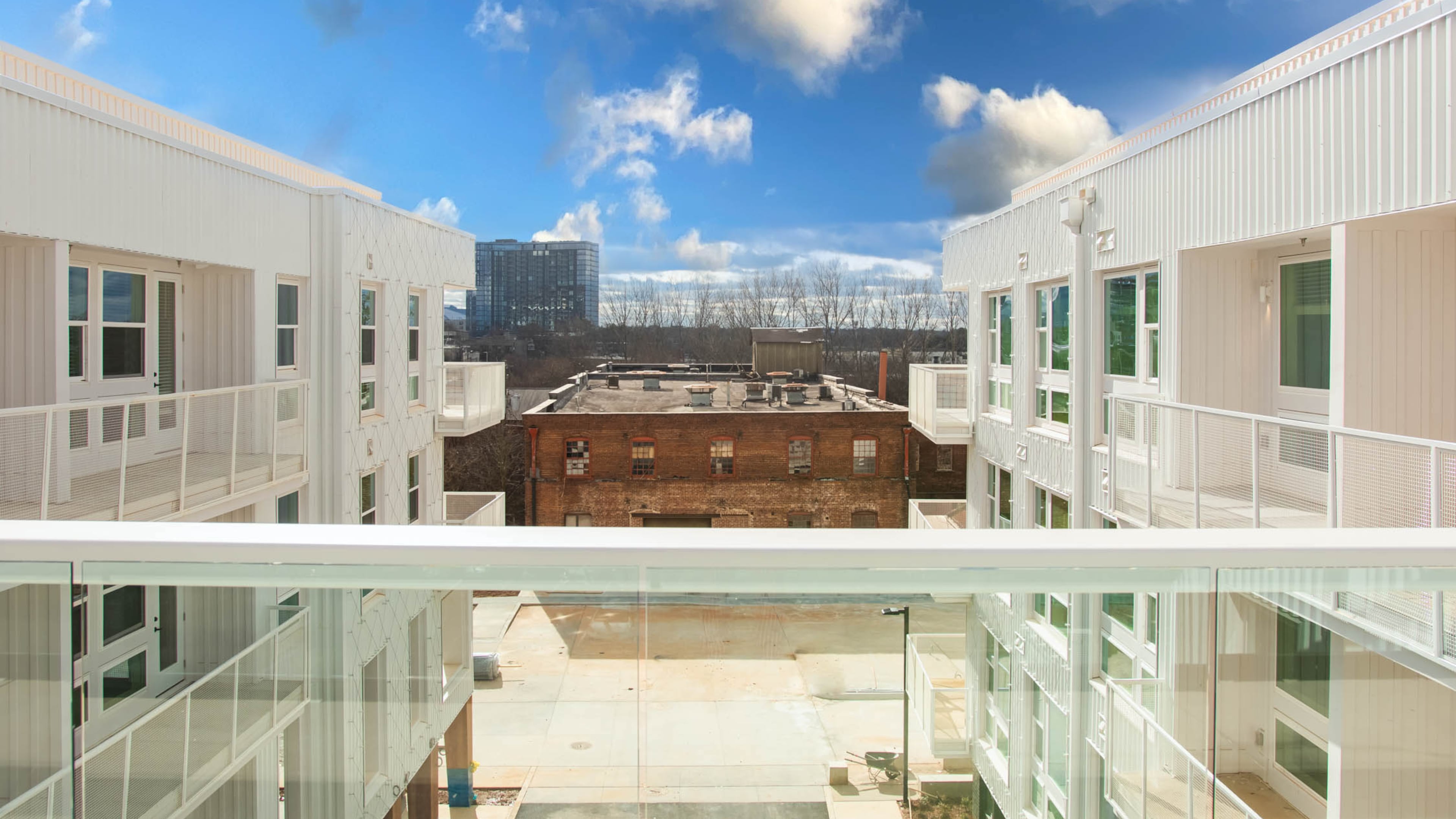First phase of the Goat Farm’s redevelopment scheduled for April 1 opening

On April 1, the Goat Farm, a 12-acre arts complex in Atlanta’s Blandtown neighborhood, will reveal the first phase in its long-awaited re-opening. The unveiling is part of a $250-million, two-year-long redevelopment of the west Midtown site at 1200 Foster St. NW.
The Goat Farm long served as a foundational hub for multidisciplinary visual artists including Corinna Sephora Mensoff, Linda Mitchell and Eleanor Neal; a site for film and television shoots including “Hunger Games: Catching Fire” and “The Walking Dead”; and an authentically shaggy, iconic creative nexus a short drive from gleaming Midtown skyscrapers.
With a mix of historic and new buildings designed by New York City-based architecture firm Bureau V Architecture, the roughly 500,000-square-foot campus will include 60,000 square feet of ground floor art and creative studios and more than 200 studio, one- and two-bedroom apartments on the floors above.

“We generally believe in the idea that mixing higher-level artists with artists that are earlier in their careers is a good thing,” said Goat Farm founder Anthony Harper.
Atlanta artists Jenny Henley and Evan Blackwell Helgeson are two of the artists who have leased studios, which may also become spaces for performing artists or even tech start-ups or inventors, said Harper. Sixty percent of the Goat Farm’s studio artists will be returning artists who had spaces at the community’s original iteration.
The Goat Farm complex eventually will be home to residency programs for the Creatives Project, Tila Studios and choreographer Lauri Stallings’ glo as well as an exhibition space and multidisciplinary venues. Though still in fundraising mode, the Museum of Contemporary Art of Georgia, currently located in a hard-to-access 75 Bennett St. complex in south Buckhead, will occupy a prominent 1-acre site and modern 26,000-square-foot building designed by Atlanta’s Mack Scogin Merrill Elam Architects. Construction is slated to begin in 2024.
Atlanta-based TriBridge Residential, a partner in the Goat Farm’s project redevelopment and expansion plan, has developed loft projects at the Fulton Cotton Mill Lofts, Hotel Roxy Lofts and Lofts at Muses, among others.
TriBridge director of development Dave Weissman noted of their unique collaboration: “We hope that it shows the development community that partnerships like this aren’t just possible, but they’re accretive to what we’re all trying to achieve, from either side of the table. And so we hope that it encourages developers to seek out partnerships like these.”

At the center of the project is Harper’s revenue-generating strategy, what he describes as a “sustainable arts model,” using rent money from studios and apartments to fund ongoing arts programming at the Goat Farm. “That’s always been really important for us, is to not drain existing pots of funds that are available to the ecosystem in Atlanta, but to actually be generating new buckets of funds.” Harper added about the innovative plan, “It’s helping us address things like a rise in property taxes or rising costs in general.”
The cornerstone of the Goat Farm’s revival continues to be the arts, which were from the beginning integrated into the site plan, said Bureau V Architecture partner and founder Peter Zuspan. “One of the first drawings that BVA produced for the Goat Farm was a site map isolating dozens of potential locations for artwork — from permanent to temporary, from sculpture to performance-based works,” he said.
The bulk of the Goat Farm’s arts programming will debut in 2025 along with a restaurant/bar, cafe and art book shop. Public art projects from Carley Rickles, Antonio Darden, Nikki Starz, Crystal Jin Kim and Branden Collins will be on view in the first phase of the reopening. (They were selected by Harper, Goat Farm managing director Allie Bashuk and director of operations, programming and innovation Mark Dinatale.)
Progress on the project continues despite the fact that the National Assembly of State Arts Agencies consistently ranks Georgia at the bottom for government arts funding.
Zuspan noted that “the Goat Farm’s historic arts cultural ecosystem — somehow persisting for decades without consistent governmental, institutional or patron-based support — is its most important legacy, both for the campus itself, but also for Atlanta.”

